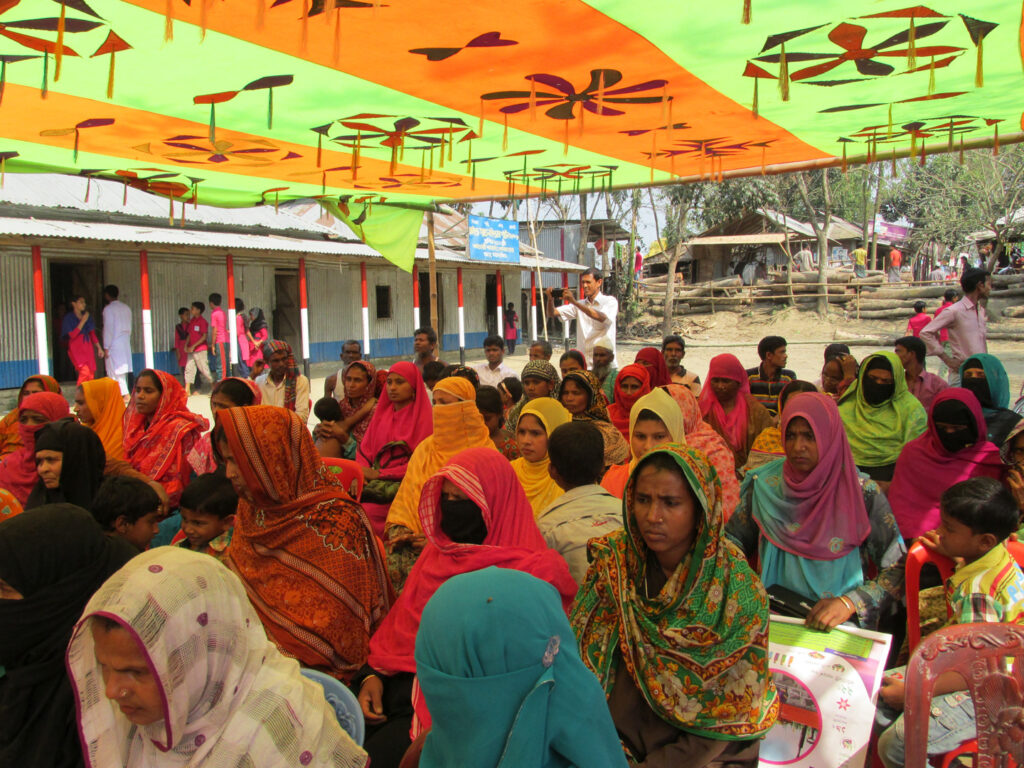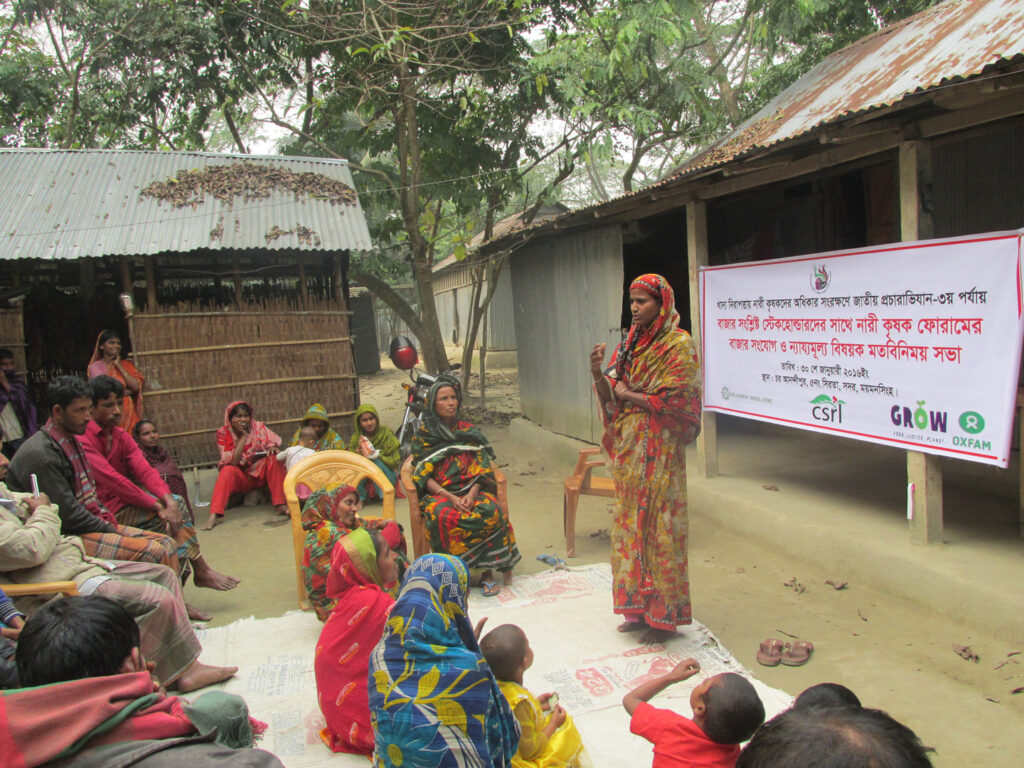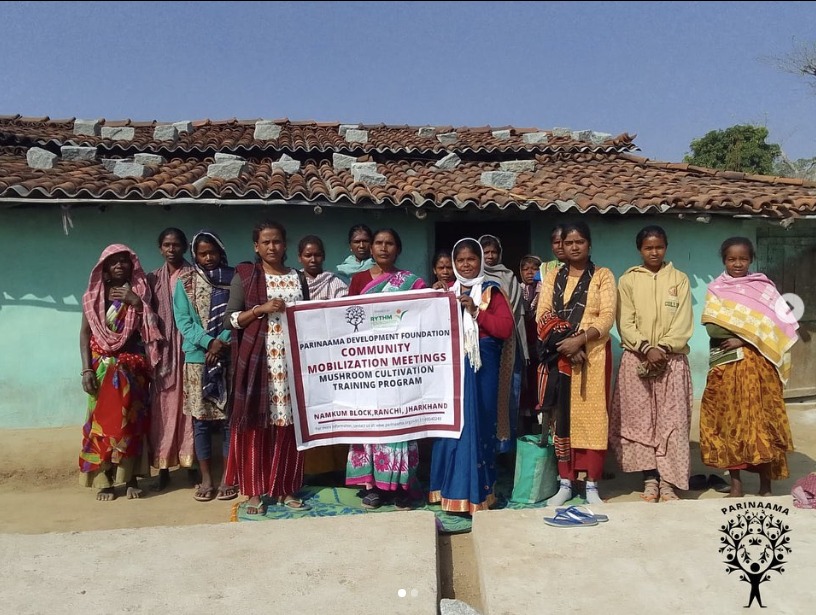On the International Day for the Elimination of Violence against Women, #25N, RIPESS Intercontinental puts the spotlight on violence other than physical, psychological and obstetric violence that makes women that half of the population oppressed under the yoke of heteropatriarchy: economic violence.
By economic violence we refer to those factors that perpetuate situations of inequality, hindering the development towards a full life for women and girls all over the world, occurring in both the private and public spheres:
- Discrimination in private sector recruitment
- Wage inequality
- Unequal training opportunities
- Control of women’s wages
- Less representation in decision-making spaces
- Reduced opportunities for access to the labour market
- Inequality of rights to ownership of goods and resources
- Use of money as a mechanism of control and coercion towards women.
In various parts of the world, as we at RIPESS Intercontinental have been able to document thanks to, among other processes, the Intercontinental Gender Commission, there is great inequality in the possibilities of access to economic resources, whether financial or natural.
On the one hand, the difficulty for many women whose work is carried out in the domestic sphere, i.e. care work, and is neither paid nor recognised: they are not granted loans, mortgages or other banking products that could make their businesses or initiatives grow.
On the other hand, in some parts of the world, access to land ownership is limited by cultural inequalities, which exclude many women from inheritance, especially in rural areas. With regard to the purchase of land, there is the question of women’s purchasing power and their knowledge of the regulations governing such sales.
According to Tarja Halonen, former President of Finland (2000-2012) and member of the Council of Women World Leaders:
Due to discriminatory practices such as inadequate land tenure, lack of credit, unequal pay and limited decision-making power, and the prevalence of sexual and gender-based violence, women’s participation in land management is often blocked.
From Africa and Asia to Latin America, we see how women and girls suffer when they are excluded from land allocation. Currently, only one in five farmers worldwide are women, despite making up almost half of the world’s agricultural labour force and producing up to 80% of food in developing countries.
In the face of this lack of Economic Sovereignty, the Social Solidarity Economy (SSE), with the values that it promotes and that drive it, creates opportunities for the future and a dignified life for women in vulnerable situations. Some of these values, which are the basis on which the entities that are included in the SSE should be guided, are equity, solidarity, mutual support, climate justice, social justice and protection, decent work, fair trade, food sovereignty, responsible consumption, egalitarian and democratic governance, good living, feminism … In short, the goal of putting the lives of people and the planet at the centre as opposed to making profit regardless of the consequences.
Among these SSE initiatives that are part of RIPESS Intercontinental and that strive to mitigate and fight against economic violence, this year we have focused on two from the Asian continent that are inspiringly tackling more than complicated situations in both Bangladesh and India:
- Development Wheel // DEW is a non-profit organisation founded in 1996. The aim: to promote poverty alleviation through self-help initiatives from the poorest households in Bangladesh. The main focus of the organisation is to work for the promotion of sustainable households for small agricultural, handicraft and arts producers, facilitating the development of small enterprises in order to generate sustainable self-employment opportunities for the rural and urban disadvantaged population, especially women. In addition, DEW also works in the areas of climate change and environment, food sovereignty, promotion of grassroots agriculture, gender equality and women’s empowerment.

The current situation of violence in Bangladesh:
Shah Abdus Salam is Founder and Secretary General of the DEW Council and an active participant in the gender commission of RIPESS Intercontinental, which meets once a month to share concerns, develop tools and build links, among many other tasks that collectively emerge in a feminist and solidarity network active in so many countries and sectors. A constant review of internal practices is necessary to eradicate gender inequalities and promote a transformation of the patriarchal model, which is the basis of all forms of gender-based violence.
On 4 October, Shah shared in this circle the horrible situation her country is currently facing:
After the anti-government and pro-democracy student mutiny last summer; and after Prime Minister Sheikh Hasina and her cabinet were ousted by the pro-democracy disinvestment movement and a mass uprising against the government led by the centre-left Awami League party; an interim military government was superimposed. It was the final stage of a broader movement known as the student-popular uprising or the July Revolution. Although the movement was initially limited to the goal of reforming quotas in government jobs, it developed into a massive anti-government uprising after the deaths of several protesters. The movement was also driven by ongoing socio-economic and political problems, such as the government’s mismanagement of the national economy, rampant corruption among officials, human rights violations, Sheikh Hasina’s accusations of undermining the country’s sovereignty, and growing authoritarianism and democratic backsliding.
According to Shah, it is actually radical Muslims who have seized power in the coup. The situation is more than critical due to an upsurge of uncontrolled violence on the streets, as seen in this video Dozens of Hasina’s party members hunted down and killed in mob attacks; 29 bodies found.
There is almost no coverage of this issue in the international media, and on a day like today, it is worth highlighting the even more terrible situation for the rural women Shah works with in DEW, who are in extremely vulnerable situations and who, without a stable political reality, see the support that keeps their households afloat, such as the Gender Equality Project – Development Wheel, in jeopardy.

Women in Bangladesh are now being forced to cover themselves completely, when Bangladesh has been a secular democracy in which several religions have coexisted until this year. The media do not talk about this in Europe, but solidarity must be intercontinental and internationalist.
- On the other hand, in the more remote and rural areas of India, the Parinaama Development Foundation also works with women and children. In addition to health and education, they focus their work onlivelihoods, with an emphasis on projects that create employment opportunities, providing training and capacity building to improve the employability and productivity of the women and youth they work with, including economic empowerment, skills development and micro-enterprise. All projects address the underlying issues of social exclusion, gender and the safety of children and youth to achieve broader objectives.

It is in rural areas, where girls’ schooling is not yet widespread, and where women do not have the opportunities to flourish, that their rights are least respected, returning once again to the reality of economic violence: without opportunities for well-being, prosperity, learning, improvement, it is not possible to live in full rights. The increase in the capacity of choice is brought about by greater economic independence and resources that allow – in the case, for example, of women who have suffered abuse – to begin their recovery.
Entrepreneurship as a path towards women’s economic autonomy has many difficulties and obstacles, but there are realities that aim to generate solutions and strengthen this type of initiative from a collective and supportive point of view.
These two projects of such importance for a huge number of women could be included next year in the thirtieth anniversary of the Fourth World Conference on Women and the adoption of the Beijing Declaration and Platform for Action 1995 (Beijing+30), considered the most progressive plan ever to promote women’s rights. This commemoration is an opportunity to reinforce the commitments made by States to achieve gender equality in the Beijing Platform for Action, as well as to ensure their mainstreaming in the implementation of other global commitments, such as the 2030 Agenda for Sustainable Development, among others.




